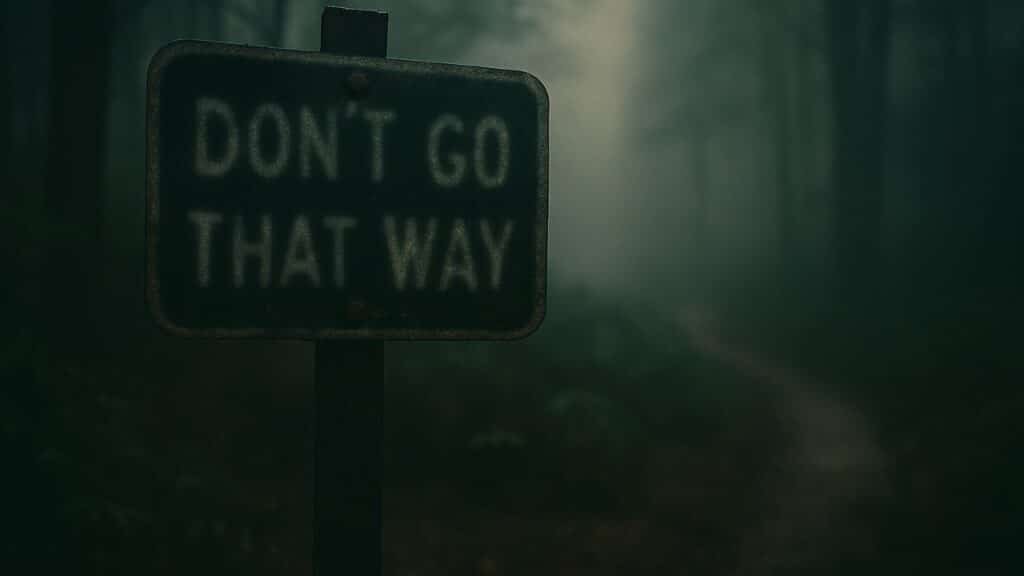I’ve heard people swear they read an entire book in a dream once. Front to back.
Some even claim they’ve scrolled through text messages or checked their email, crystal clear but when they wake up and try to quote what they read, nothing.
The words vanish like mist.
Why Reading in Dreams Feels Real (Even When It’s Not)
So that raises the weird question. can you actually read in dreams, or is your brain just bluffing?
Turns out, science has been poking around this question for a while.
A study out of Germany looked at people who read a lot during the day versus those who didn’t.
The avid readers did report more “reading dreams” than non-readers, but still not many.
They were way more likely to dream about sports or daily routines than sitting down with a book. (Erlacher & Schredl, 2008).
In other words, your brain doesn’t seem that interested in putting text on dream pages, even if you love to read.
It needs your visual cortex, language centers, and attention networks all working together.
And in REM sleep, that wild stage when most vivid dreams happen, those regions don’t exactly stay fully “online.”
They’re active, sure, but in a fuzzy, almost abstract way.
That’s why you might glance at a page or a sign and feel like you’re reading something but look again, and the letters morph or vanish.
Dream researchers have actually noted this “instability of written text.”

Lucid Dreaming and the Brain’s “Reading Mode
Funny thing though: some lucid dreamers, the ones who realize they’re dreaming while it’s happening, say they can read, sort of.
Usually short things: one word, maybe two. “Wake up.” “Help.” “Run.” The classics.
Others say the words melt or rearrange into gibberish.
There’s even imaging evidence that our brains handle “text-like” stuff in dreams.
Scientists in Kyoto managed to decode basic dream imagery using fMRI scans and AI models.
They found patterns linked to general categories like people, buildings, and even books but they couldn’t get down to the level of actual words or sentences. (Kamitani Lab, 2013).
So the brain might be simulating “reading,” just without the fine print.
I once dreamed I was reading a sign outside an old diner. Bright neon. Said, “OPEN 24 HOURS.” when I blinked, it read, “DO NOT ENTER.”
I woke up thinking my subconscious had a sense of humor or maybe it was warning me about something I was ignoring.
Who knows.
Now, here’s where it gets really interesting: lucid dream studies show that the prefrontal cortex (the part that handles planning, reasoning, and language) lights up more when people become self-aware inside a dream. (Voss et al., 2014).
In 2025, another study found that lucid dreamers show stronger brainwave connectivity between frontal and parietal areas, the same areas you’d use for reading and comprehension.
So maybe lucid dreamers can “read” a little better because their brains wake up partway.
Not fully, but enough to create something closer to real perception. It’s like half-turning on the lights you can make out shapes but not details.
And while we’re at it, it’s worth noting that researchers from the Society for Neuroscience reported that lucid dreaming sits between wakefulness and REM, your consciousness slips into a strange middle zone where logic and imagination mingle. (BrainFacts.org, 2025).
Reading in that state is like trying to type with gloves on: doable, but clumsy.
“I Can Read in My Dreams!” … What That Might Mean
Every now and then, someone swears they really can read in their dreams.
Full sentences. Song lyrics. Even book pages. They might not be imagining it but we don’t know for sure.
Some dreamers, especially lucid ones, report perfectly legible words that stay put when they look again.
That’s unusual, but not unheard of. Researchers think it has to do with how active your prefrontal cortex (the part of the brain responsible for attention, logic, and language) is during sleep.
In most REM dreams it’s pretty quiet, but in lucid dreams it “wakes up” just enough to stabilize things like text or numbers.
There’s also the continuity theory of dreaming, the idea that your dreams pull directly from your waking habits.
If you read, write, or work with words constantly, your brain keeps that rhythm running even when you’re asleep.
So you might be one of the rare dreamers whose mind keeps the “reading circuits” humming overnight.
But it’s also worth asking how real that dream reading feels.
Does the text make sense? Do you remember exact sentences after waking?
Most people notice the words fade or change when they look back.
It could be your mind creating the feeling of reading without producing stable text, kind of like a movie prop that looks real from far away.
Still, if you’re someone who can read consistently in dreams, write it down. Keep a record.
You might be experiencing a form of semi-lucidity, that in-between space where the logical and imaginative sides of the brain shake hands for a moment.
And that’s fascinating all by itself.
When Dreams Write the Music
There’s a strange cousin to “reading in dreams”, hearing something brand new.
Plenty of musicians have woken up with entire melodies echoing in their heads, convinced they’d just dreamt a song that didn’t exist yet.
Keith Richards said he woke one morning, rewound the tape recorder beside his bed, and found the riff to “(I Can’t Get No) Satisfaction” recorded there, apparently, he’d mumbled it in his sleep before drifting off again.
Paul McCartney’s “Yesterday” famously came from a dream too. He thought he’d subconsciously stolen it because it felt too real.
Even Ian McCulloch from Echo & the Bunnymen described dream fragments that shaped his lyrics later on.
It’s the same curious phenomenon the brain’s creative regions firing freely while logic sleeps.
When you “read” or “hear” something in a dream, your mind is composing meaning in its own private language.
For musicians, that comes through as melody.
For writers, it might appear as text or poetry.
Either way, the subconscious is trying to communicate, not through strict grammar or linear thought, but through rhythm and emotion.
In that way, dreaming is less like reading a sentence and more like listening to the soul improvise.
When Words Appear in Dreams (and What They Mean)

Psychologically speaking, when words do appear in dreams, they often carry emotional weight.
They might represent a message from your subconscious, something you’re trying to tell yourself but can’t quite articulate while awake.
For instance, dreaming of reading a love letter might symbolize a desire for connection.
Seeing unreadable text could suggest confusion or fear of missing an important message.
If you’re into dream journaling, try this: when you wake up, jot down any text or words you remember, even if it’s nonsense.
Patterns sometimes show up later. The words themselves might not matter as much as the feeling they left behind.
So, can you read in dreams? Strictly speaking, not in a stable, word-for-word way. That doesn’t mean your mind isn’t trying to.
It’s just translating meaning differently, more symbol than syntax.
Maybe that’s the point. Maybe dreams aren’t meant to be read. Maybe they’re meant to be felt.
Because sometimes, the message you’re looking for doesn’t come in letters at all. It comes in the spaces between them.
Bringing It All Together
Dreams aren’t about perfectly reading or writing or composing, they’re about receiving.
They hand you fragments, flashes, half-finished lyrics, and pages that disappear when you look too closely but that doesn’t make them meaningless.
It makes them alive. The next time you dream of words that blur or a melody that fades the moment you wake, take it as a sign your subconscious is still speaking, just not in straight lines.
Dreams don’t follow grammar; they follow feeling
Sources
- Erlacher D., Schredl M. (2008). Relation between waking sport activities, reading, and dream content in sport students and psychology students. PubMed
- Kamitani Y. et al. (2013). Decoding dream imagery using fMRI and pattern recognition. Smithsonian Magazine
- Voss U., Holzmann R., Tuin I., Hobson J.A. (2014). Lucid dreaming: a state of consciousness with features of both waking and REM sleep. PMC Article
- Demirel C., Gott J., Appel K., et al. (2025). Electrophysiological correlates of lucid dreaming: sensor and source level signatures. Technology Networks
- Society for Neuroscience. (2025). The Fascinating Neuroscience of Lucid Dreaming. BrainFacts.org




